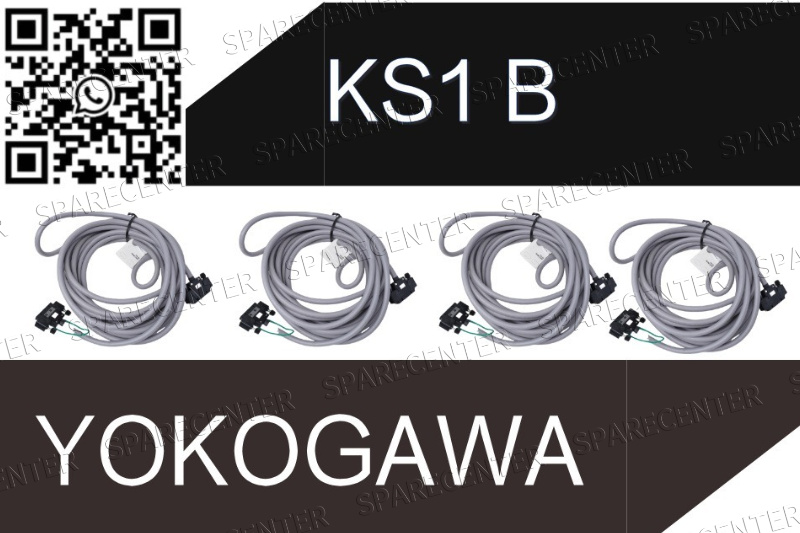| Introduction The realm of industrial automation demands unwavering precision, robust reliability, and seamless integration. In this intricate landscape, the YOKOGAWA KS1 B emerges as a cornerstone, embodying a legacy of engineering excellence. This article delves into the critical role of the KS1 B in modern industrial control systems, exploring its core functionalities and the significant impact it has on operational efficiency and safety. The Foundation of Control: Understanding the KS1 B's Core FunctionalityAt its heart, the YOKOGAWA KS1 B serves as a vital component within Yokogawa's distributed control systems (DCS), particularly the CENTUM series. It functions primarily as a control station module, acting as the brain of a specific control loop or group of loops. Its primary responsibilities include executing control algorithms, processing input/output (I/O) signals, and communicating with other system components. The KS1 B is fundamental to achieving high precision in complex processes. The KS1 B boasts features designed for high performance and fault tolerance. For instance, its robust processing capabilities allow it to handle complex control strategies with speed and accuracy, crucial for processes requiring tight regulation. Furthermore, the module often incorporates redundancy features, such as dual processors or communication paths, to ensure continuous operation even in the event of a component failure. This built-in reliability is paramount in industries where downtime can lead to significant financial losses or safety hazards. The YOKOGAWA KS1 B's ability to seamlessly integrate with various field devices and sensors via dedicated I/O modules further enhances its versatility, making it adaptable to a wide range of industrial automation applications, from chemical plants to power generation facilities, all contributing to its overall system resilience. |
The deployment of the YOKOGAWA KS1 B translates directly into tangible benefits for industrial operations. Its precise control capabilities lead to optimized process performance, resulting in improved product quality, reduced waste, and lower energy consumption. By maintaining parameters within tight tolerances, the KS1 B helps industries achieve higher levels of operational efficiency and profitability through superior precision.
Beyond efficiency, the KS1 B significantly contributes to system resilience. Its inherent redundancy and diagnostic capabilities allow for early detection and mitigation of potential issues, minimizing the risk of unexpected shutdowns. In the event of a malfunction, the control station module's hot-swappable design often permits replacement without interrupting the entire process, further enhancing operational continuity. Moreover, the KS1 B's role in a well-integrated DCS facilitates comprehensive process visibility and control for operators, enabling quicker responses to anomalies and fostering a safer working environment. The long-term support and reliability associated with Yokogawa products, including the KS1 B, also translate into reduced maintenance costs and a longer operational lifespan for industrial control systems. This solidifies its role in robust industrial automation.
Conclusion
YOKOGAWA KS1 B YOKOGAWA KS1 B YOKOGAWA KS1 B YOKOGAWA KS1 B YOKOGAWA KS1 B YOKOGAWA KS1 B YOKOGAWA KS1 B Precision Precision Precision Precision Precision Precision Precision Precision Precision Precision Precision Precision Precision Precision Reliability Reliability Reliability Reliability Reliability Reliability Reliability Reliability Reliability Reliability Reliability Reliability Reliability Reliability Reliability Operational Efficiency Operational Efficiency Operational Efficiency Operational Efficiency System Resilience System Resilience System Resilience System Resilience
If you want to more details,please contact me without hesitate.Email:sales@sparecenter.com



